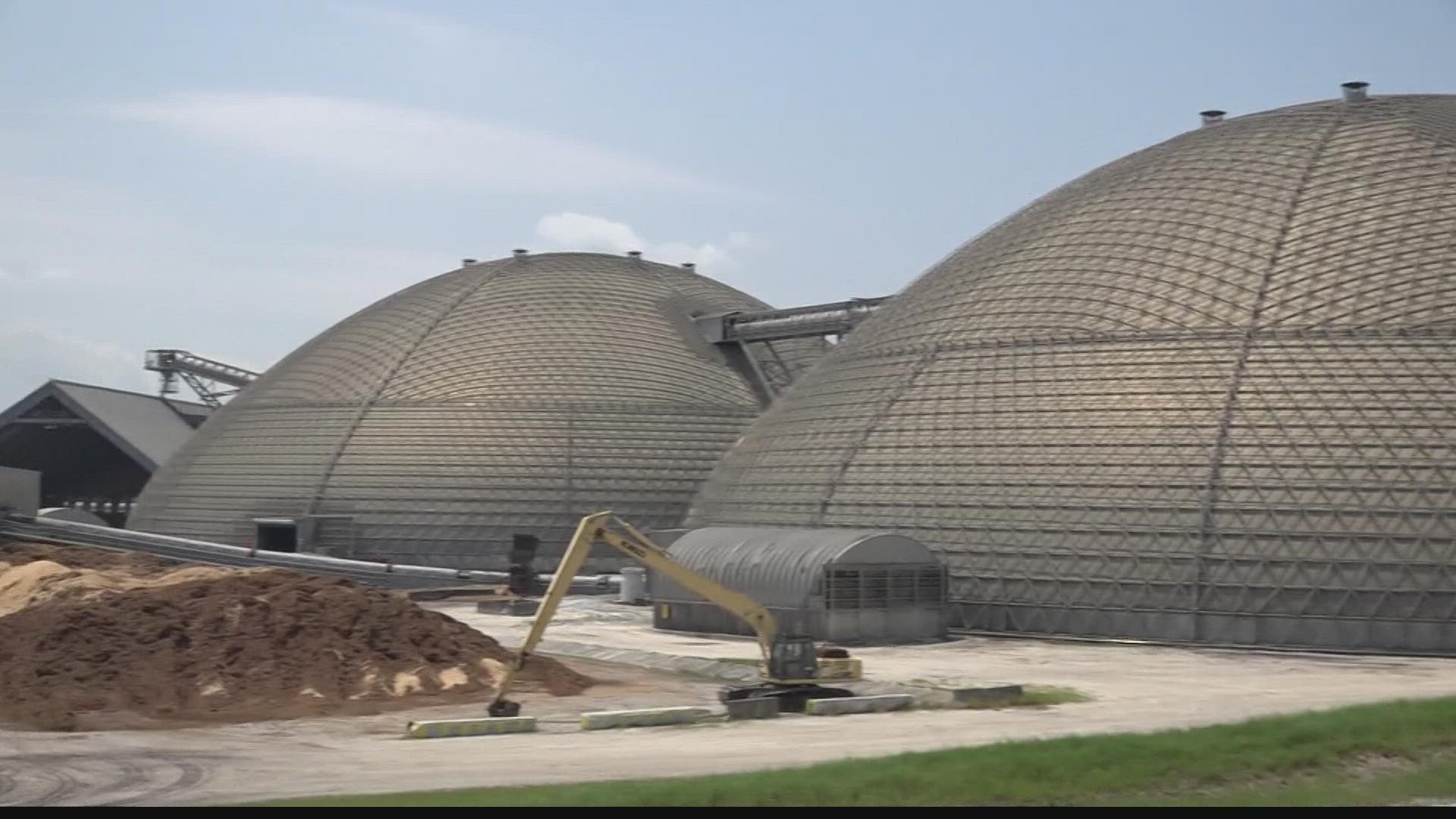JACKSONVILLE, Fla — It's now September and that means you could see a higher number on your utility bill.
Electricity used by JEA customers in August cost over 30 percent more than the same time last year, according to a JEA spokesperson. Your money is one consideration in local environmental groups' efforts to get JEA to commit to using more renewable energy.
Environmental groups want JEA and the city of Jacksonville to commit to using 100 percent renewable energy by 2050. To understand JEA CEO Jay Stowe's answers to questions about renewable energy, you have to understand one more acronym: IRP.
"IRP" stands for integrated resource plan. It's JEA's plan to find the best energy options, working with a variety of community groups from the school board to a local hospital to the local Sierra Club. The IRP is still in the works. Local Sierra Club Chair Logan Cross, who is a stakeholder engagement committee member involved in forming the IRP, says the plan is meant to be finalized at the beginning of next year.
Stowe says they must consider the environment, reliability of JEA's system, cost for customers and JEA employees. Right now two percent of JEA's energy comes from renewable energy. Environmental groups want to see a commitment to 100 percent renewable energy by 2050.
First Coast News asked Stowe if JEA will commit.
"I think the IRP is going to help define what that should look like," Stowe answered. "I think that we will have to have some targets along the way. I don't know exactly what those will be, but we're going to continue to work with the community including the Sierra Club and St. Johns Riverkeeper. We also have to keep in mind that we're talking about 250 people that are at the Northside generation facility, which is a workhorse for our system to keep that going and we have to be aware of how that affects our employees and the community."
Sierra Club Chair Logan Cross wants to see a timeline before 2030 to decommission the Northside Generating Station. Local power plants are some of the biggest sources of greenhouse gasses. The Northside Generating Station produces 30 percent of JEA’s energy needs.
When the St. Johns River Power Park was taken down in 2019, Stowe says workers were transferred to other jobs within JEA. He brings up that park and another power plant when First Coast News asked about specific actions by JEA to try to reduce emissions.
"Over the last several years, we no longer get electricity from Plant Scherer, which was a significant plant that had coal that we used to get electricity from," Stowe said. "St. Johns River Power Park is not no longer. We are making changes in the in the way that we operate the facilities we have now. We're using more biomass wood chips to run generation."
And... wait for it...
"And we're looking at, long term, what the right mix is for our renewables," Stowe said.
In January last year, the Sierra Club gave JEA an "F" for its climate goal. Cross says a new grade is expected to come out soon.
You can join in the conversation about climate change at the next St. Johns Riverkeeper event River Rising: Brewing Up Solutions. Jacksonville’s first chief resilience officer, Anne Coglianese, will be there. The meeting is at Intuition Ale Works at 6:00 p.m. September 13.

